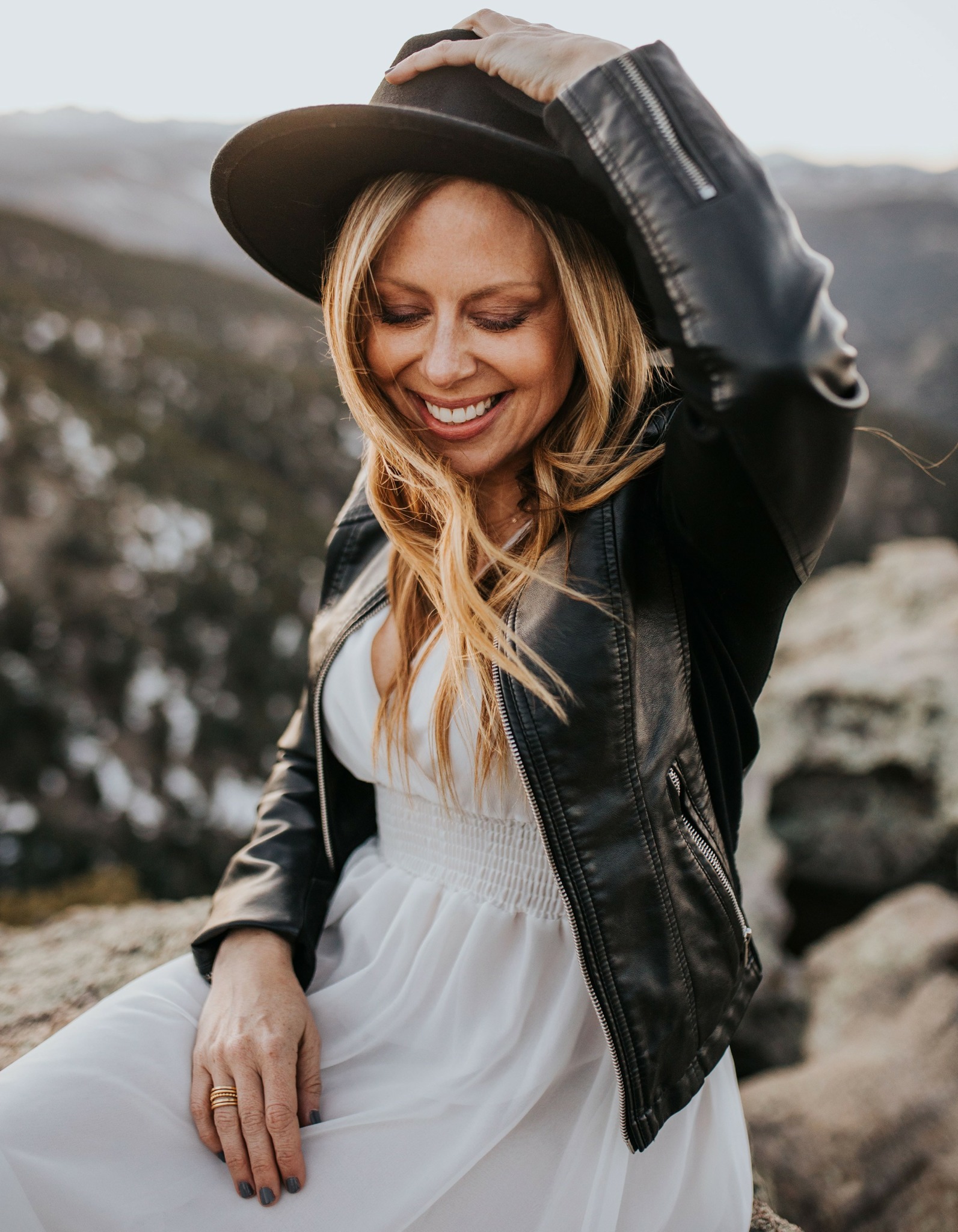Alright – so today we’ve got the honor of introducing you to Lindsay Malkovich. We think you’ll enjoy our conversation, we’ve shared it below.
Lindsay, thanks for joining us, excited to have you contributing your stories and insights. Before we get into specifics, let’s talk about success more generally. What do you think it takes to be successful?
I think the most important part of becoming successful is finding your thing. What do you love to do? What are you passionate about? And how does it serve you—not just financially, but emotionally and mentally? For me, that discovery was everything. Because the truth is, there will be challenges. There will be roadblocks. There will be burnout. But when you truly care about what you’re doing, those obstacles won’t stop you—they’ll push you. You’ll fight for it, even when it’s hard, because it matters to you.
The COVID pandemic really drove that lesson home. It was a massive challenge for small business owners, especially in the event industry. Everything changed overnight. We had to rethink how we operated, how we marketed ourselves, and whether we’d even be able to do business the way we used to. It was scary and uncertain. But because we love what we do, we adapted, learned new strategies, and kept going. That passion was the reason we made it through.
I’ve also learned how important it is to have a growth mindset. Things will go wrong—that’s a guarantee. But being able to look at those moments and ask, “What can I learn from this?” is what helps you grow into a stronger business owner, a better communicator, and a more grounded leader. And just as important as learning and evolving is knowing how to set clear boundaries and expectations from the start. Growth doesn’t mean burning yourself out.
Speaking of burnout—rest is so undervalued. I won’t pretend I didn’t hustle hard in the early days. But none of us do our best work when we’re exhausted, running on fumes, and disconnected from life outside our businesses. It’s essential to have things in your personal life that fill you back up and recharge you. That’s not a luxury—it’s what allows you to show up fully and do your best work.
In the end, success isn’t just about drive. It’s about discovering what drives you, staying curious and open to growth, and giving yourself the space to rest and reset along the way.
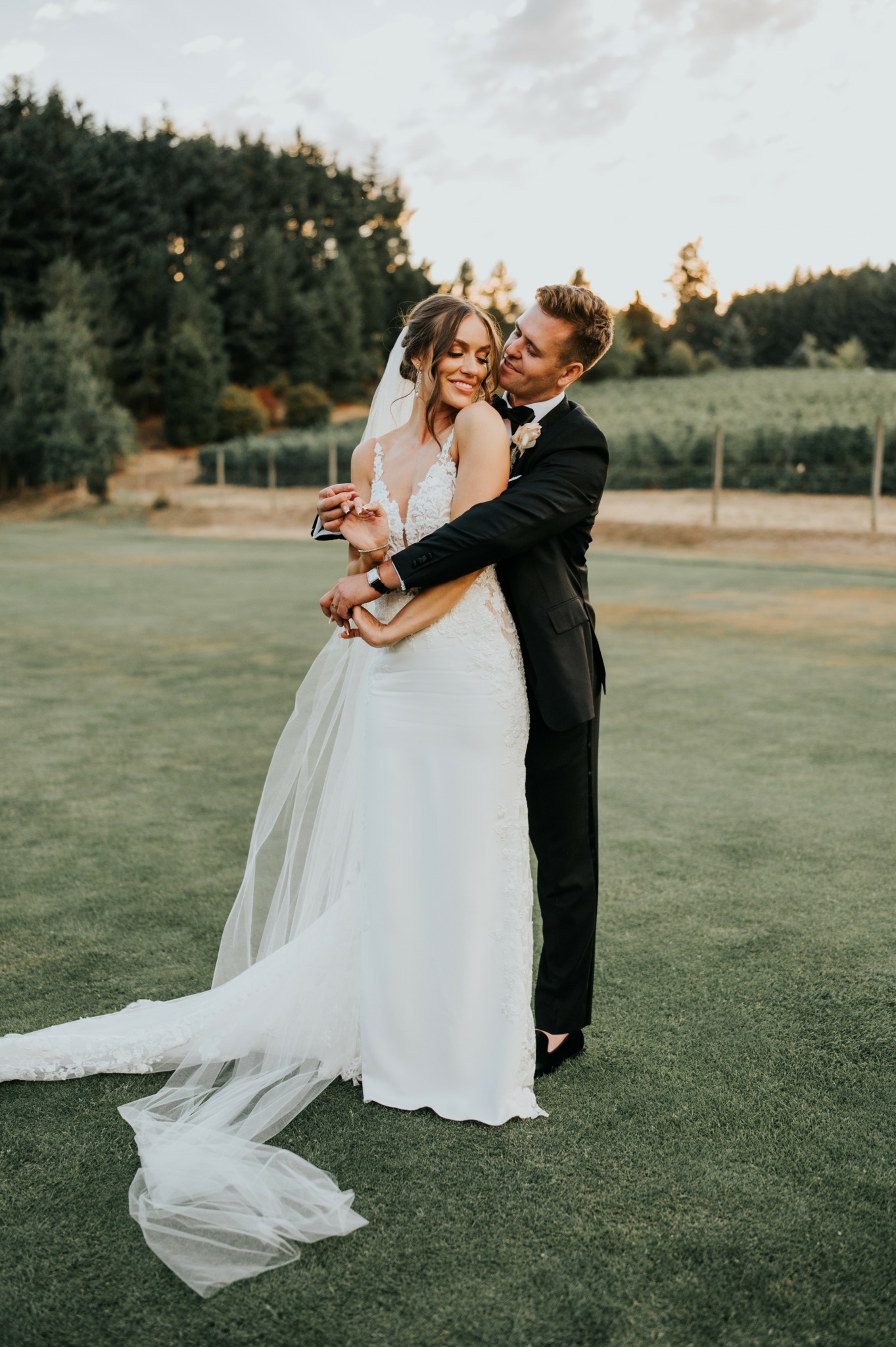
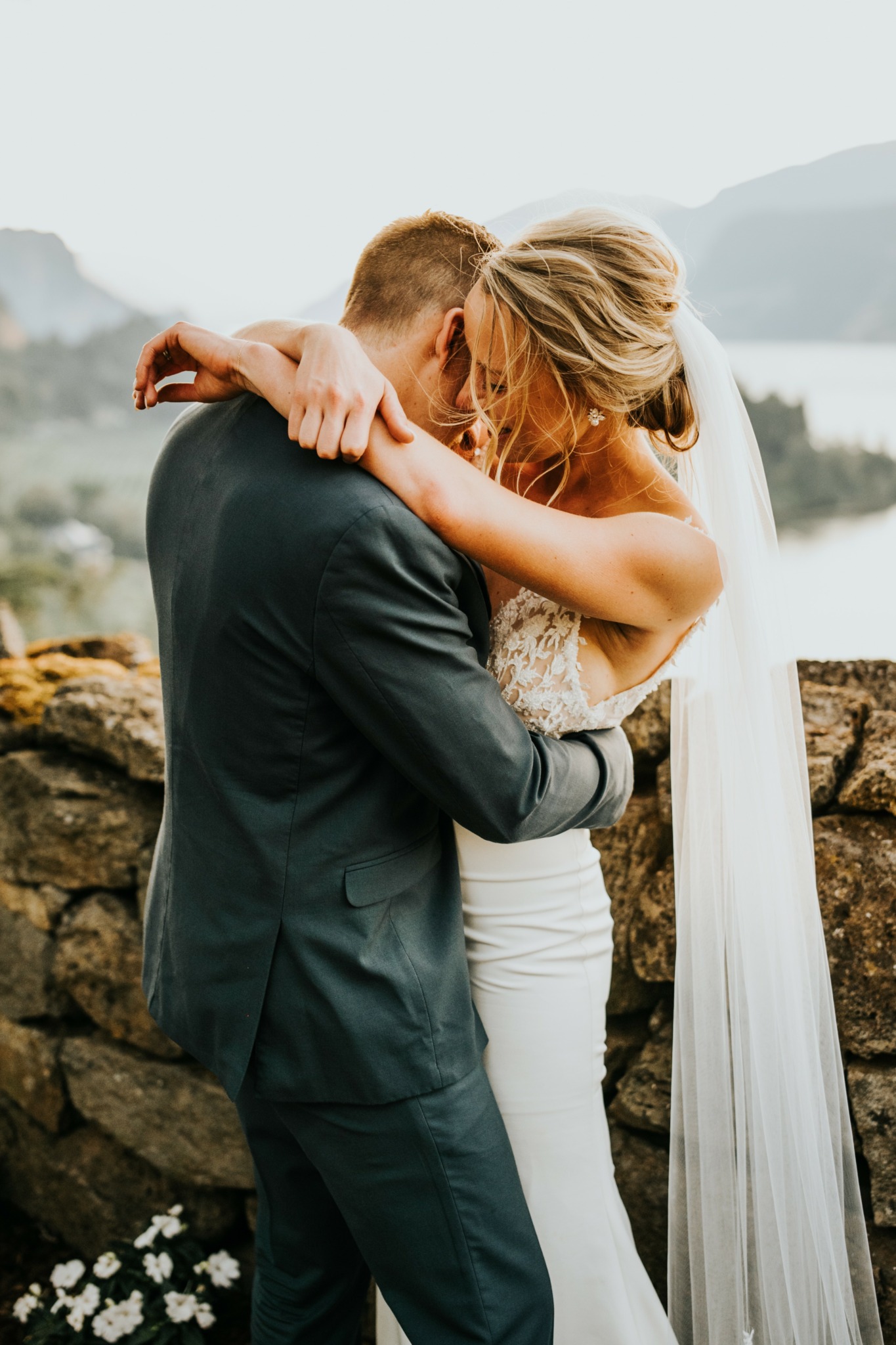
Great, appreciate you sharing that with us. Before we ask you to share more of your insights, can you take a moment to introduce yourself and how you got to where you are today to our readers.
My path to becoming a freelance photographer wasn’t straightforward—it came with a lot of plot twists. From a young age, I knew I wanted to be self-employed. That drive likely came from watching my dad, architectural designer, establish himself as a freelancer.
People have always fascinated me, which led me to study psychology in graduate school. I thought I was on the path to becoming a psychologist. But I was really young, juggling a full-time job while studying, and I never gave myself space to explore my creative interests. Once I graduated and started working in community behavioral health, it didn’t feel right. The job was high-stress, and I could feel myself burning out. So, as a way to unwind, I bought my first camera and started exploring downtown Portland—capturing the city’s architecture and people on the streets. That’s where my love for photography began.
As time went on and my dissatisfaction with my career grew, I bounced around jobs, mostly in sales. Eventually, after having my second child, I left the workforce to be a full-time stay-at-home mom. That’s when everything shifted.
One day, with a three-year-old and a six-month-old at home, I found my old camera and something just clicked—again. I had the perfect live-in test subjects, and during nap times and late nights, I dove headfirst into YouTube tutorials and any free education I could get my hands on. Soon, I was photographing every family, graduate, and newborn I could. Then I posted an ad on Craigslist and started taking on sessions with strangers at low rates just to gain experience. Bit by bit, I built a family and newborn photography business.
And weddings? At the time, I swore I’d never shoot them. Too much pressure. Too many moving parts. But then one day, a wedding photographer friend called me in a pinch. She needed a second shooter for an upcoming wedding, and I agreed to help.
That day changed everything.
For the first time in my life, I felt that moment people talk about—that deep knowing that you’ve found what you’re meant to do. Weddings brought together everything I loved: human connection, emotional storytelling, visual creativity, and even my background in psychology. Documenting people’s relationships in an intentional, artful way compelled me to completely shift my focus.
I knew how to use a camera, but weddings are a whole different thing. I still had a lot to figure out—like how to plan and structure the day, actually stick to the timeline, and set up the systems behind the scenes to keep everything running smoothly. I wasn’t quite there yet, so I reached out to every established wedding photography studio in my area and offered to second shoot or assist—for free. Eventually, a local studio brought me on for the season. I shadowed over 30 weddings, and that experience was invaluable.
By the time I was ready to market myself, I had confidence, a strong portfolio, and solid industry connections. I attended local networking events, and vendors knew my face, my work ethic, and the quality of my images. They started referring me, and my business grew.
What really made things take off for me was finding my signature style—both in the way I shoot and how I edit. I’ve always been drawn to people and the unique dynamics in their relationships, so my goal became to capture who each couple truly is. If they’re quiet and intimate, I want their photos to feel like that. If they’re playful and silly, I want that energy to come through too. Once I leaned into that kind of authenticity, everything started to shift. Couples began reaching out saying they felt like my photos actually captured the real them. That, along with my rich editing style, is still the number one reason people tell me they choose me—and it’s what I think really sets me apart. It’s also what I’m most proud of in my work.
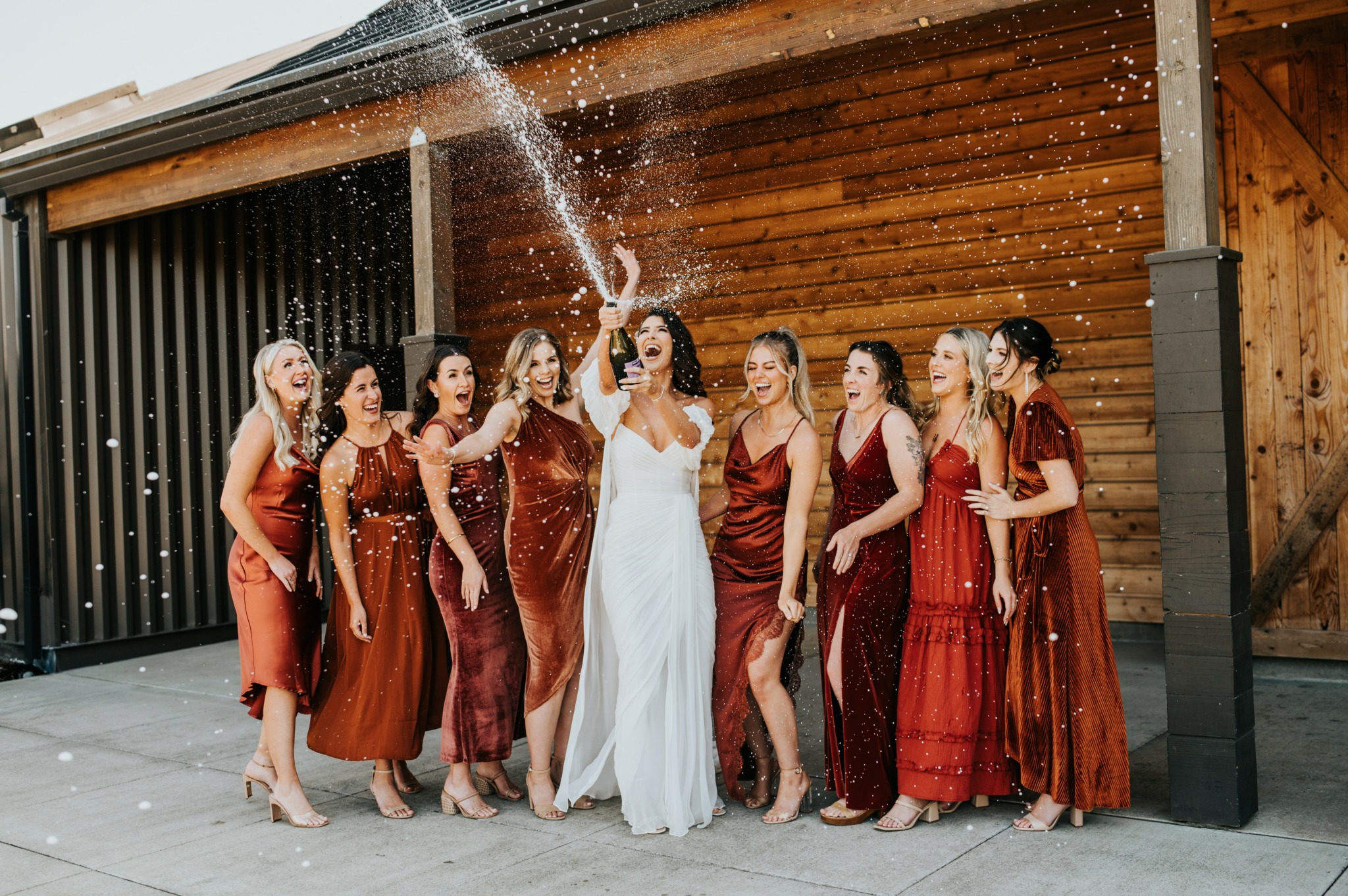
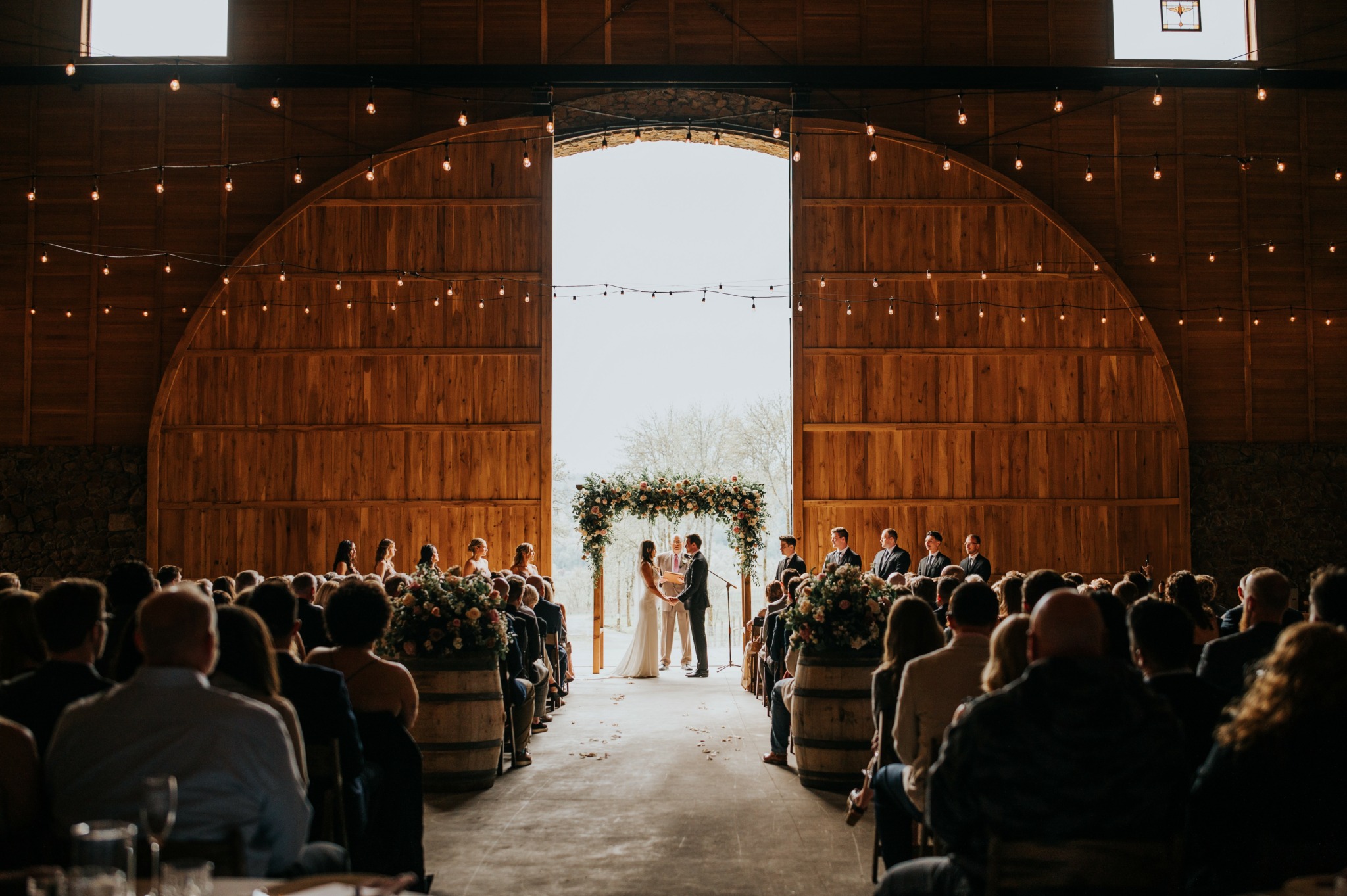
Can you open up about how you funded your business?
When I started my photography business, I was a stay-at-home mom and we didn’t have much extra income to put toward gear. I didn’t want to take out loans, so I took things slow—saving and investing in equipment one piece at a time. In those early years, every dollar I made went right back into the business. Wedding photography can be expensive to get into—you need multiple camera bodies, lenses, lighting, backups, and more. At first, I rented what I needed for each job, and over time, I was able to buy exactly what I needed, bit by bit.
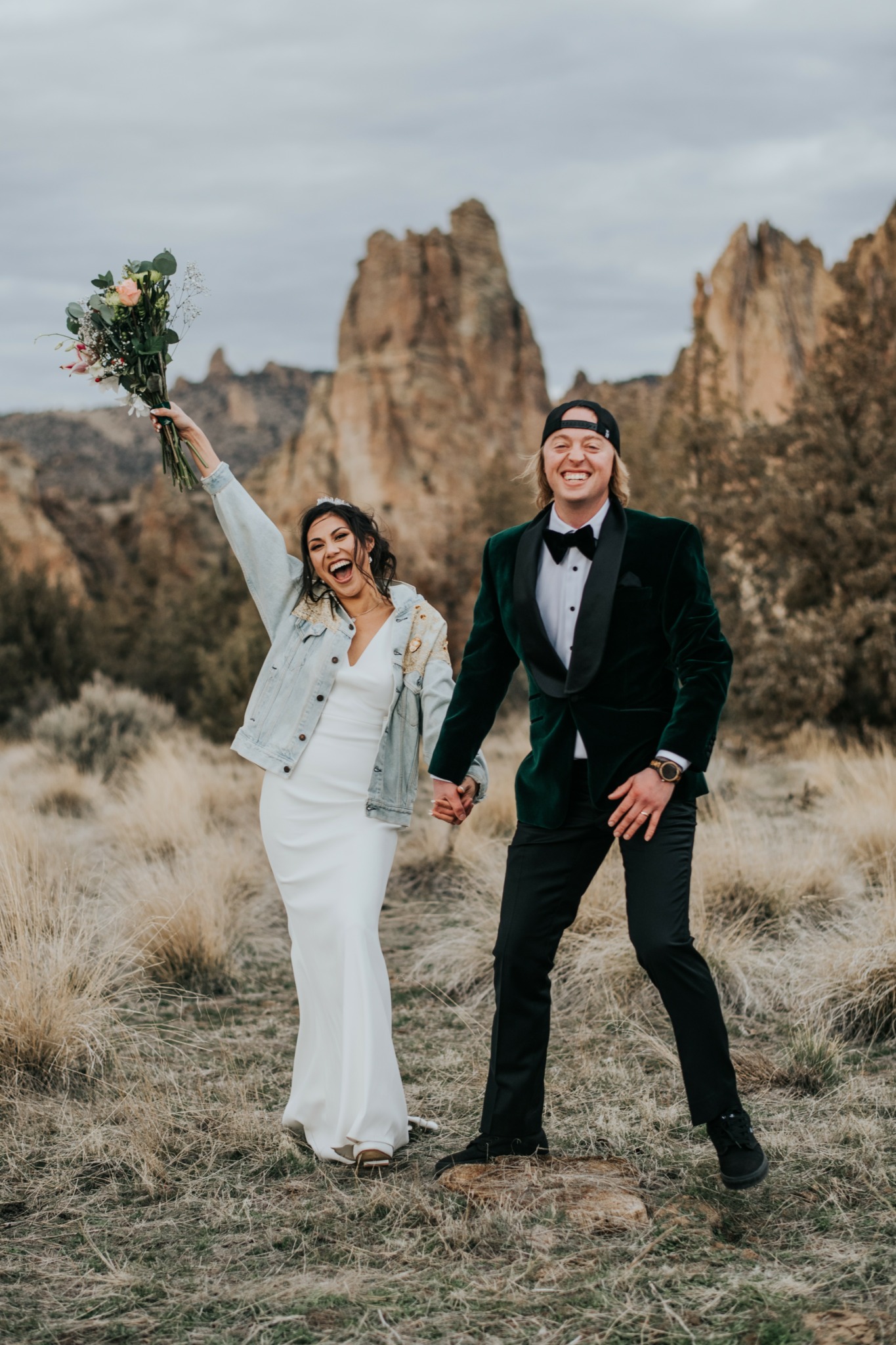
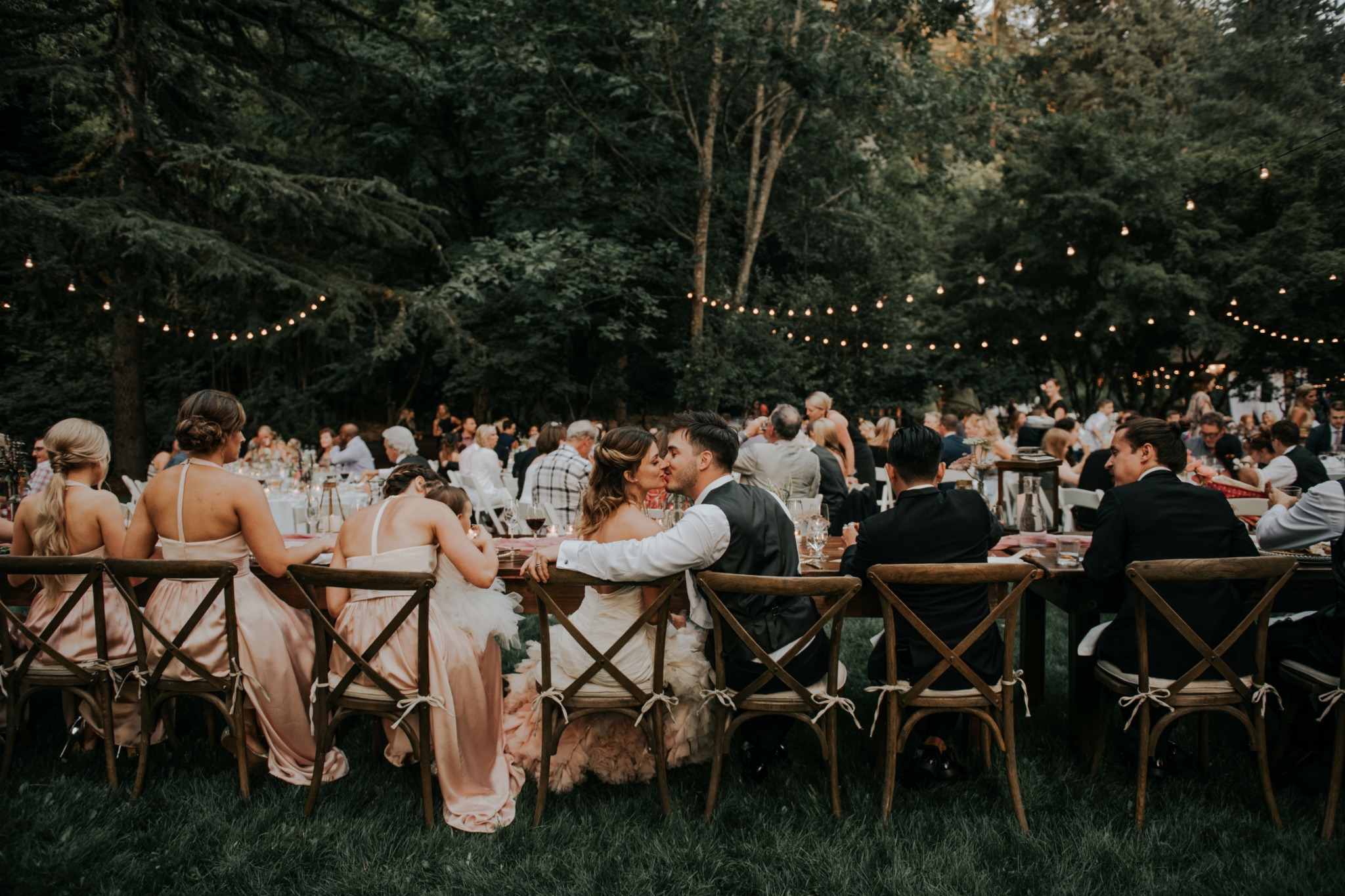
What do you think helped you build your reputation within your market?
I pride myself on offering a client-centered experience, with strong communication, accountability, and follow-through. My goal is always to give clients not just great photos, but a great experience—from the first conversation to final delivery. I never want to overpromise and underdeliver.
When it comes to the photography itself, I know how uncomfortable being in front of the camera can feel for a lot of people. One of my strengths is helping clients relax and feel at ease so their photos feel natural and genuine.
As a wedding photographer, there’s a unique balance you have to strike—you need to be fun, flexible, and patient, but also efficient, organized, and confidently in control of the day. It’s a balance that fits my personality well, and something I’m regularly complimented on. Clients often mention how calm and grounded I am, and how smoothly I help the day run.
Contact Info:
- Website: https://www.lindsayblairphotography.com
- Instagram: @lindsayblairphotography
- Facebook: Lindsay Blair Photography
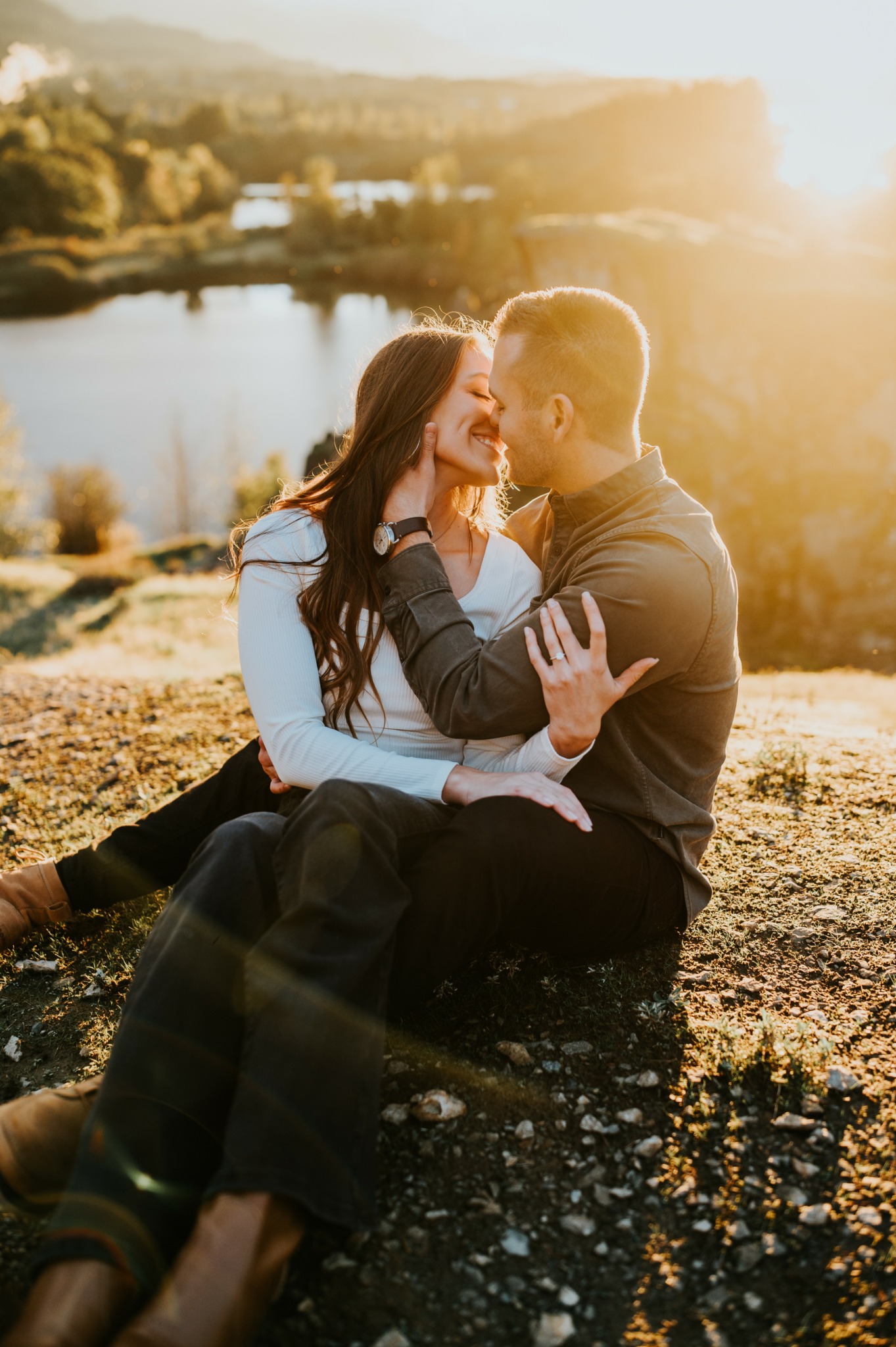
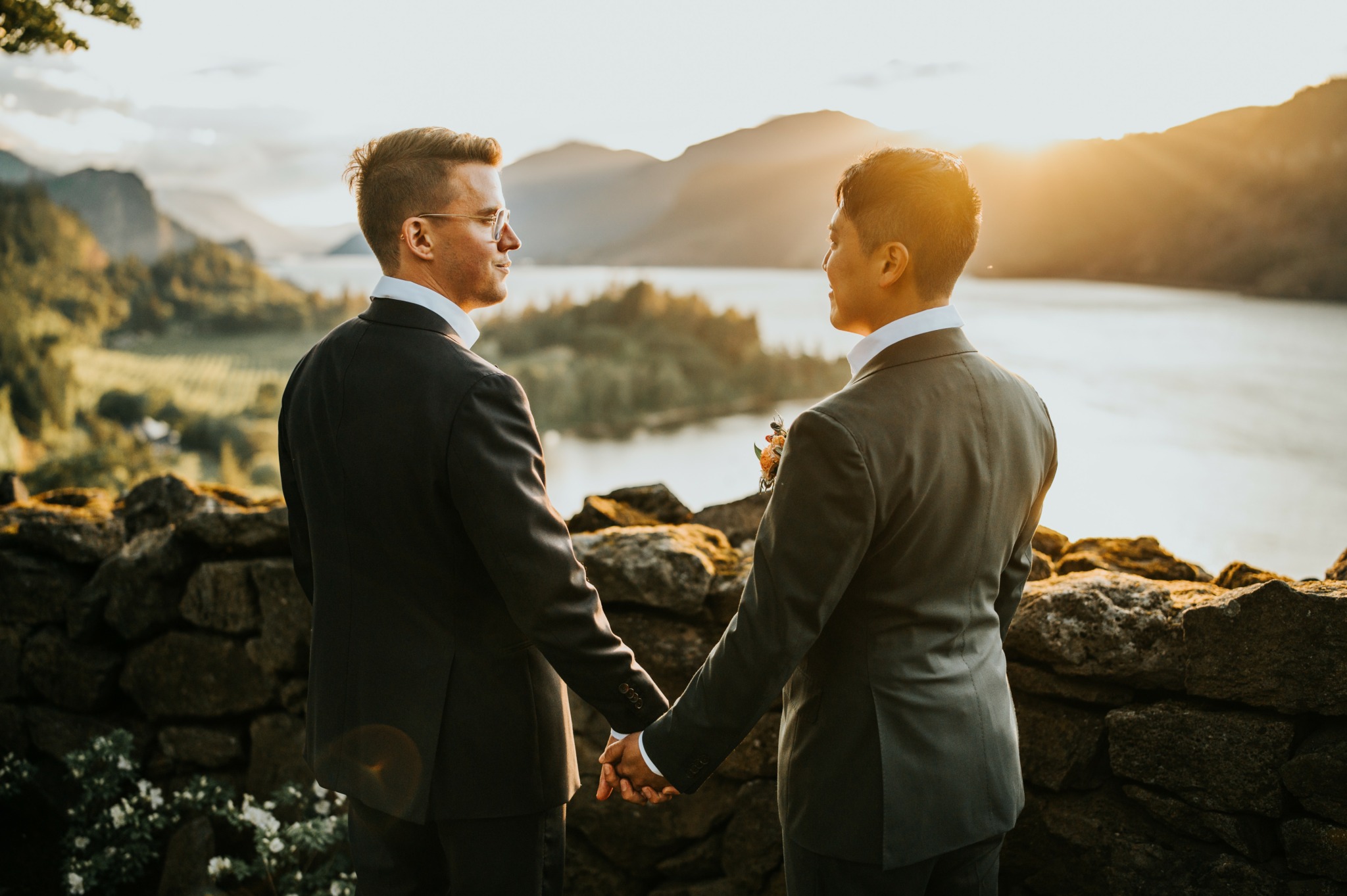
Image Credits
Lindsay Blair Photography


